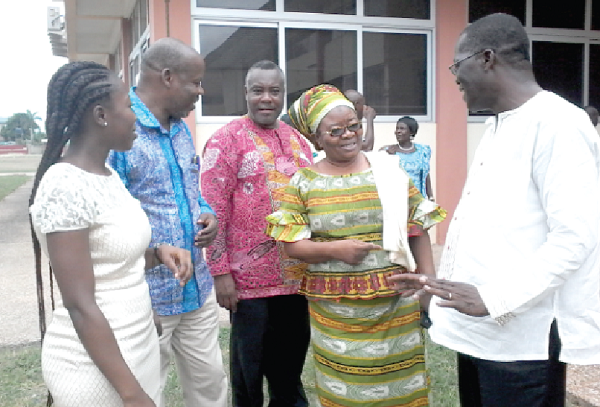The Centre for Indigenous Knowledge and Organisational Development (CIKOD) has embarked on a campaign to promote the cultivation and consumption of local food crops and vegetables.
The campaign is to encourage and support the collection, conservation and sharing of local and indigenous seeds.
In addition, the CIKOD is promoting crops that are not dependent on expensive and potentially dangerous external inputs such as chemical fertilisers, pesticides and herbicides and which promote nutritional diversity.
The Executive Director of CIKOD, Mr Ben Guri, announced this at a day’s forum on seed diversity for nutrition, health and wealth in Accra last Wednesday.
The forum
The forum, which was organised by CIKOD, in collaboration with the Peasant Farmers Association of Ghana (PFAG), was attended by over 60 participants made up of farmers, farmer groups and other actors in the agricultural value chain.
It sought to draw attention of the public to the potentials of the local and indigenous food crops and vegetables in the context of ecological production.
It was also to draw attention to the emergence of nutrition-related illnesses as a result of poor nutrition in Ghana and encourage people to produce and consume healthy local foods to reduce the occurrences of such ailments.
Backyard gardening
Mr Guri said CIKOD was also encouraging urban and backyard gardening to improve nutrition.
He was hopeful that the forum would enlighten the public on the value of urban gardening and be motivated to initiate home gardens at their backyards in support of the government’s policy of “Planting for Food and Jobs”.
Mr Guri explained that CIKOD was a local NGO with a focus on promoting ecological food production systems, as well as water for production and sanitation.
“We do these through working with traditional authorities, indigenous institutions and local NGOs/CBOs/FBOs and decentralised local governance structures,” he explained.
Dietary diversity
A Nutritionist with the Trust Hospital, Mrs Grace Dzifa Wornyoh, who spoke on “Dietary diversity for nutrition and health in Ghana,” said good nutrition was of essence for good health as there could be no optimal health without optimal nutrition.
“Good nutrition requires a satisfactory diet that is capable of supporting the individual consuming it in a state of good health by providing the desired nutrients in required amounts,” she explained.
Mrs Wornyoh identified factors affecting dietary diversity to include urbanisation and dietary transitions, level of income, public education and advertisements in the media.
She said the trend of dietary difficulties was a shift from balanced dietary to fast foods, increased calorie intake, refined sugars, increased intake of sodium, low intake of fibre and shift to more sedentary occupations.
Mrs Wornyoh said the way forward was for the country to increase its food production, patronise backyard gardening, promote appropriate and improved technologies for home preservation.
The Programme Coordinator of the Peasant Farmers Association of Ghana, Madam Victoria Adongo, who spoke on “Urban Agriculture Food Security and Nutrition,” said over 200 million people were involved in urban agriculture worldwide, feeding 800 million urban dwellers.


